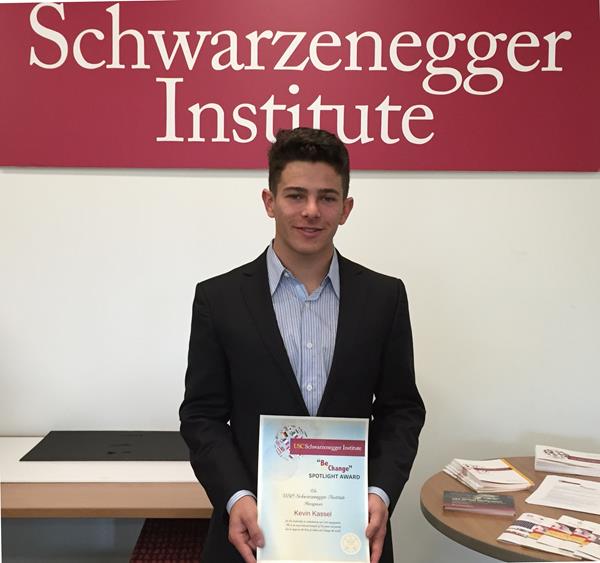Sustainable Development Solutions Network
2015 ended with 195 countries reaching a historic agreement at COP21 to combat climate change and begin implementing the actions and investment needed to create a low carbon, resilient and sustainable future. The USC Schwarzenegger Institute was pleased to play apart in those negations and as a result has a first-hand understanding of the follow up work needed to meet the goals pledged in Paris. One of the areas key to the agreement’s long term success is finance. World leaders, NGO’s, entrepreneurs and academics continue to explore ways to reach the level of investment needed to create a low-carbon infrastructure both in the developed and developing nations.
Foreseeing the importance of this issue, UN Secretary General Ban-Ki Moon launched the UN Sustainable Development Solutions Network (SDSN) in 2012 to mobilize global scientific and technological expertise to promote practical problem solving for sustainable development. The Institute and our partner the R20 joined the Network earlier in the week at USC when we hosted Aniket Shah, the SDSN’s Financing Sustainable Development Initiative Program Leader. Joining Shah for a discussion on what the SDSN’s priorities are this year to support the COP21 agreement, were USC faculty and researchers with an expertise is in the area of climate change, energy and environment.
Shah provided a fascinating overview of the scope and magnitude of the COP21 goals and stressed the considerable challenges of implementation. In short the global community needs to invest $93 trillion over the next 15 years to build the low-carbon infrastructure which is a huge challenge. That number is particularly staggering when compared to with total global financial holdings of $335 trillion and the gross world product in 2014 of $108 trillion. Currently the world invests approximately $3 trillion per year on infrastructure, finding an additional $3 trillion per year is a daunting task. Groups like the SDSN, World Bank, and investors like Bill Gates and others expect to find this additional capital from both the public and private sectors. The challenge is not just finding the investment financing but also finding the expertise needed to implement these many projects.
Following Shah’s presentation participants discussed the complexity of financing the required investment especially for the higher risk projects. Shah claimed that this work is mostly focused on mitigation, and that investment at the local level for adaptation is another issue that needs to be considered.
Over 300 universities are part of the SDSN. Universities contribute in a number of ways including research, reducing their own carbon footprints and educating students. The Institute is proud to be part of this important network.
USC Student Spotlight Award Winner
The Institute believes in the power of one person to make a difference, and prioritizes supporting USC students who use their time and talent to improve the world. Each semester we select a Spotlight Award Winner who exemplifies the power that individuals have to improve the lives of others and impact their community: to “be the change”. We received a large number of nominations for the award which includes a $2,000 prize which supports the winner’s work in the community. We were very moved by the stories we received and wish that we could shine a spotlight on the all the work being done by USC Students however there was one nominee whose work particularly stood out and who serves as an inspiration to the Institute, other students and the community.
Kevin Kassell is a junior with a double major in business and environmental studies. Kevin is also a surfer who found his passion to help others while in high school when he learned about a clean drinking water project sponsored by Hurley. Kevin joined the project and volunteered his time delivering water filters to villages in developing nations. He saw first-hand how one small filter provides clean and safe drinking water to 100 people who would otherwise only have access to dirty water that caused serious and in some cases life threatening illnesses. Kevin started Club H2O to raise funds to provide filters to unserved villages in Pakistan, India and elsewhere. Kevin innovatively found people or groups that were visiting his target regions to deliver the filters. This allowed Club H20 to reduce its shipping costs and help more people. Kevin’s commitment and passion to the organization he created has already helped thousands of people by protecting their health and improving their lives.


